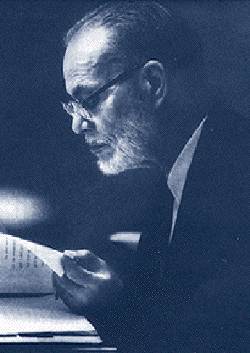 By Yasser Latif Hamdani
By Yasser Latif Hamdani
Last week (February 6) marked the 114th Birthday of one of Pakistan’s greatest unsung heroes. Once again, there was no mention of commemoration of his remarkable like. No sense of gratitude from a nation for which he did so much. He has been wiped out of our memory because he was an Ahmadi, despite his glorious contributions to Pakistan and its cause (see related post on Dr. Abdul Salam).
Sir Zafrullah Khan’s services rendered to Muslims of India, Pakistan and the Third World are second only to that of Quaid-e-Azam Mahomed Ali Jinnah. As a jurist, a diplomat and a patriot he stood head and shoulders above the lesser men who have made a mockery of our republic.
Born in 1893 in Sialkot in what was to become one of the earliest Ahmaddiya households, this small town boy rose to be one of the shrewdest legal minds of his time. His early education was in Sialkot, after which he proceeded to Lahore for his bachelors degree, under the tutelage of none other than the great Iqbal himself. He got his law degree from King’s College London in 1914, where he stood top of his class and was the first person from the Indian subcontinent to do so. He was, like most great figures of that time, called to bar at Lincoln’s Inn.
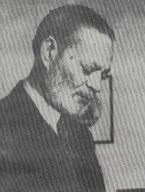
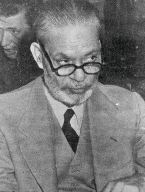
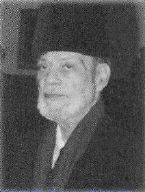


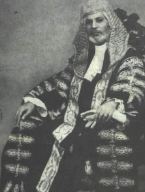
As a practicing lawyer, he soon proved his mettle and had many reported cases to his name. The first major politician to recognize Zafrullah’s talents was Sir Fazli Hussain, the founder of Unionist Party of Punjab. Starting his career in his early 30s as a member of the Punjab legislative Council, he rose to prominence as an indefatigable crusader for Muslims of Punjab. Later he represented the Muslims at round table conference and crossed swords with figures like Jinnah and Gandhi. In 1931, he became the Muslim League president and at the roundtable conference, he cornered no less a person than Churchill in a committee hearing who was forced to accept Zafrullah’s point of view.
Later he was offered a seat on Viceroy’s permanent Council, which he took to further his cause. He also served at varying times as the minister of Railways, Public works, labour and law under the Viceroy. For a brief period, he also became British India’s representative to the League of Nations, just before it was dissolved.
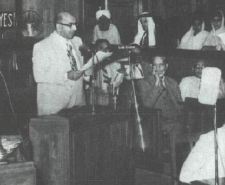
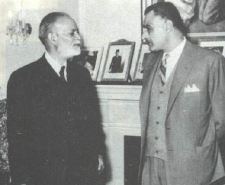
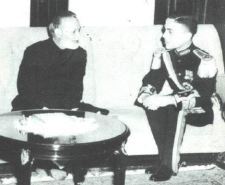
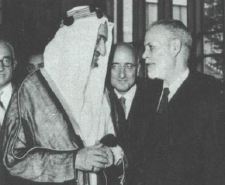
![]()
However his greatest contribution came when he drafted the famous Lahore Resolution, which till this day is the rallying point of Pakistan and Pakistani nationalism. He had been tasked with finding a common point between the popular demand for “Pakistan” and Muslim League’s all India requirements. The Lahore resolution was a broad based solution which left the door virtually open for several solutions and negotiation on the issue of partition. In essence it envisaged 2 or 3 great republics for the Muslim peoples and it was this document which forms the basis not just of Pakistan but also of Bangladesh. For this he got a lot of slack. No less a person than Khan Abdul Wali Khan highlighted Zafrullah’s religious belief to play on the popular conspiracy theory that holds Ahmadis to be British touts.
Later from 1942 onwards, he served as a federal judge (equivalent of an Supreme court C judge) of India and finally took leave on the eve of Pakistan to serve the cause of Pakistan before the Radcliffe Commission, on Jinnah’s personal request. On 25th December 1947, Jinnah appointed him the Foreign Minister of Pakistan. At the UN, Sir Zafrullah emerged as the most eloquent advocate of all third world and Islamic issues. It was Zafrullah whose efforts materialized into the UN Resolutions on Kashmir, which are the basis of the Pakistani case and grievance. Later he became the first Asian president of the International Court of Justice, a singular and unique honor for any Pakistani. He also served, briefly, as the President of the UN General Assembly. He passed away in September of 1983 in Lahore.
A prolific author on the history of Pakistan and Islam, his most famous book was titled “Agony of Pakistan” in which he makes plain the great betrayal which wrested the country from the hands of its patriots into the hands of those who were its greatest enemies. Ironically, today Jinnah’s most trusted lieutenant is not even remembered by the state which owes him so much, including its own founding document. It is the memory of people like Zafrullah Khan that will keep alive the original idea of Pakistan and there is no doubt that one day the posterity will reclaim its true destiny as a progressive and modern republic.
Yasser Latif Hamdani is a lawyer in Lahore and a researcher of the history of the Pakistan Movement.




















































Syed Amin Husseini, Grand Mufti of Palestine, in a telegram dated, Cairo, March 1, 1950, says:
[quote]Wish reassure your Excellency our deep appreciation your invaluable efforts for just causes of Islam. May God guard you crowning your efforts with success.[/quote]
Former Prime Minister Zulfikar Ali Bhutto sent a message of appreciation to Chaudhry Muhammad Zafarullah Khan on his retirement from the President ship of the International Court of Justice at The Hague. His message read:
[quote]I wish to convey to you our deep appreciation for the services you have so selflessly rendered over several decades to the people of Pakistan as well as to the international community. As a leading member of the political movement, which led to the achievement of a homeland of the Muslims in the sub-continent and earlier as President of the All India Muslim League in 1931, you played a very significant role in the creation of Pakistan. As Foreign Minister of Pakistan for the first seven years after the birth of the country, you helped in establishing Pakistan as a state which commanded respect abroad and whose voice carried weight in international forms. Your services to Pakistan, however, did not end there. As President of the UN General Assembly and as a judge of the International Court of Justice you not only served the international community as a whole, but in doing so enhanced the prestige of Pakistan. I can say with full confidence that all of us shared the pride that one naturally felt at the respect you commanded in the international community and the United Nations in your various capacities.[/quote]
His Majesty King Faisal-al-Saud, who in his capacity as Foreign Minister of Saudi Arabia headed the Saudi Arabian delegation to the United Nations, in a letter, dated May 5, 1948, to Muhammad Zafarullah Khan, thanked him [quote]for your close co-operation and the noble stand which your Excellency has taken, not only during the meeting but since the question of Palestine has been put before the United Nations. Allow me to state that your high principles have created a desire on the part of all righteous persons to identify themselves with the efforts of your Excellency, not only on behalf of the Arabs, but Moslems all over the world as well[/quote], the letter adds.
[quote post=”568″]Just make sure that a few zealots do not highjack the discussion.
please, do not let e few cyber-thugs scare you [/quote]
Now, we are aware with new kind of extremists, the “Secular Extremists” who believed that they are correct & all other who are not agreed with them are “Cyber Thugs”. Its amazining & so much radiculous that “Thugs’ themselves are calling others as “Thugs”. Yes, very few “Zeolists” are trying to hijack the discussion.
Why MU is not telling the people that
1)He didn’t attained the funeral of Quaid-e- Azam, even he was present at time
2) Why he failed to fight Kashmir issue in Redcluff Mission
3) Why Gawadaspur was not become the part of Pakistan
4) Why he insisted on accepting Israel & considered it as reality
5) Why he was so interested in start trade amongst India & Pakistan even Kasmiri Muslims were facing the problems from Indians
6) Why he falsely claimed in UN that Pak army is not involved in Kasmir, & when UN mission inspected Pakistan was proven as lier.
Pls dare to tell the whole truth.
A brief life sketch
PART II – Post-Independence
• In December 1947, represented Pakistan in United Nations’ General Assembly as the head of the Pakistan delegation and advocated the stand of the Muslim world on the Palestinian issue.
• Was appointed by the Quaid-e-Azam as Pakistan’s (first) Foreign Minister which post he held from December 25, 1947 till 1954.
• During 1948 to 1954, represented Pakistan at the Security Council (UN) and admirably advocated the case of liberation of the occupied Kashmir, Libya, North Ireland, Eritrea, Somalia, Sudan, Tunisia, Morocco, and Indonesia.
• Presented to the US president English Translation of the Holy Quran, in January 1951.
• Met with a major railway accident at Jhimper, in January 1953, from which he was miraculously saved from even the slightest injury.
• Represented Pakistan at the CENTO Conference held in Manila, in September 1954.
• In 1954, became Judge of the International Court of Justice, The Hague, which post he held till 1961.
• In March, 1958, performed Umra and visited the shrine of the Holy Prophet of Islam, Hazrat Muhammad (peace and blessings of Allah be upon him) in Medina to pay homage; also met Sultan Abdul Aziz Ibne Saud and stayed in the royal palace as the Sultan’s personal guest.
• Became the Vice President of the International Court of Justice, the Hague, in the year 1958, which post he held till 1961.
• In 1960, at the request of an organisation of the US, wrote a book called: “Islam – its Meaning for Modern Man”.
• From 1961 to 1964, remained Pakistan’s Permanent Representative at the UN.
• In 1962, met President Kennedy and discussed the Kashmir issue with him.
• From 1962 to 1963, was President of the UN General Assembly.
• In 1963, visited USSR and met its leaders as well as some notable Russian Muslims.
• In November 1965, visited the Fiji Islan and delivered a lecture.
• Performed Hajj in the year 1967.
• Translated the Holy Quran in English in the year 1970.
• In 1970, was elected President of the International Court of Justice, The Hague, which post he held uptil 1973.
• Stayed in England during the period 1973 to 1983.
• Came back to Pakistan in 1983 till his death in Lahore, on September 1, 1985, after a protracted illness.